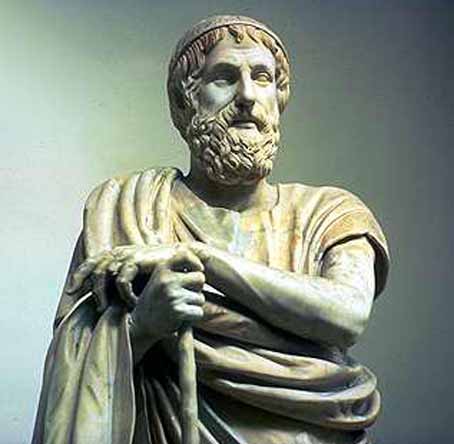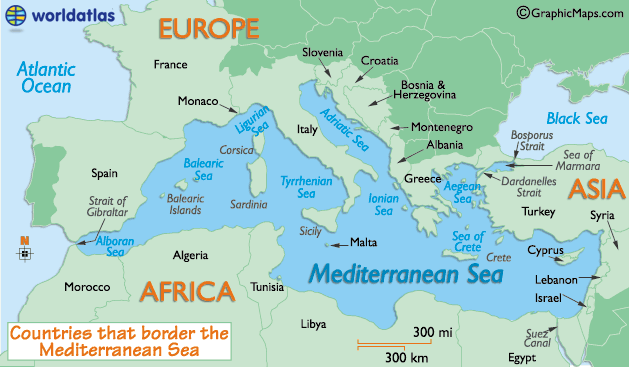Wednesday, March 11, 2015
Pop Quiz, Gumby Stories, and Babies Crying?
In class today, Mr Schick went over the slides we learned about Ancient Greece. We had a pop quiz, and only had ten seconds to answer each question. I got 100 on the quiz, and was happy I did well. The last slide of the test was a picture of a baby crying or a piece of cake. We got to answer Mr. Schick's favorite question "Are you crying?" After the quiz, we had time left so Mr. Schick told us his crazy gumby stories. The stories were really funny and class today was fun!
Tuesday, March 10, 2015
Greece Project
Topic: The Life and Writings of Homer
Meredith Engelhaupt
Alayna Meekins
Kacey Newman
Monday, March 9, 2015
Further into Ancient Greece
-Greece is a mountainous peninsula (covers 3/4 of Greece)
-1,400 islands in the seas
-This combination shaped Greece's culture
-They had many skilled sailors & shipbuilders
-They had poor/limited natural resources, so they needed to trade
-difficult to unite Greece
-Known for olives- used for olive oil, and soap- also known for wine
-arable- good farming land
-valleys cover one quarter of peninsula , 20% is suitable for farming
-diet consists of grains, grapes, and olives
-lack of resources led to Greek colonization
-temperatures usually ranged mid 40s in winter and low 80s in summer
Mycenaeans
-their influence began around 2000BCE
-located on a rocky ridge and protected by a 20-foot wall
-kings dominated Greece from 1600-1200BCE (400 years), controlled trade in the region
-1400BCE- Mycenaeans invaded Crete and absorbed Minoan culture and language "sea people" & Dorians
-around 1200BCE sea people began to invade Mycenae, burnt palace after palace
-Dorians moved into this war-torn region
-Dorians were far less advanced
-the trade-based economy collapsed
-writing disappeared for 400 years
Homer the storyteller
Greek oral tradition-stories passed on by word of mouth
-Homer lived at end of "Greek Dark Ages"
-composed stories of Trojan War c.750-700BCE
The Iliad- probably one of the last conquests of the Myceneans (Trojan War)
-The Odyssey- Odysseus attempt to return home, being thwarted by the angry god of the sea, Poseidon
-12,110 lines of dactylic hexameter
Did Homer actually exist?
-the "Homeric question"- Homer may have been a mythical creation himself
-a blind wandering minstrel; a heroic figure
Iliad and Odyssey may be the culmination of many generations of storytelling
Friday, March 6, 2015
Cyber Day.. Again
Socrates
Socrates is a Greek philosopher born in Athens in 407 BC. He was a founder of western philosophy. Socrates created the Socratic method, this method is the question and answer method. He was also sentenced to death because he worshiped false God's and corrupted the youth. Socrates could have escaped however he didn't. He was a true role model for everyone, with everything he has done. Standing up for what you believe in is truly amazing.
Wednesday, March 4, 2015
Mr. Schick Predicts the Future and the Weather?
Since we had a short class today, we talked about the weather coming up the next two days. Mr. Schick talked about how we will have a cyber day tomorrow, and how we might get off Friday as well. We started talking about cyber days, and what our cyber day could possibly be on Friday. This lead to Mr. Schick explaining how we should have class video chats on cyber days. He believes in the future, schooling will all be online. Somehow this technology talk, lead to chip trackers in the back of our heads. He talked about how everyone should have these, to track people down in case of an emergency. We also talked about how in the future, if you look into someones eyes you can tell what they are thinking. The future should be interesting, and I hope to get off school tomorrow!
Tuesday, March 3, 2015
Start of Ancient Greece
Monday, March 2, 2015
March 2
For today's cyber assignment, we are to take notes on Ancient Greece and answer the questions on the slides.
Ancient Greece
-The world's great civilizations, all located on rivers
Mesopotamia- Tigris & Euphrates Rivers
Egypt- Nile River
India- Indus River
China- Huang He River
Note the significance of Greece's location.
Greece is significant because it is located on the southernmost point of the Balkan Peninsula.
Describe Greece's topography.
Mountain ranges divide parts of Greece and plains are very small.
How would all of this affect their culture?
Location and topography are very important in creating civilizations. This could affect them if there were no seas for a water source.
What bodies of water surround Greece?
The three seas that surround Greece are the Aegean Sea, Ionian Sea, and Mediterranean Sea.
What large island is to the south/southeast?
The large island south/southeast is Crete, located at the southern edge of the Aegean Sea.
Describe where Athens and Sparta are located relating to the sea, and to each other.
Athens and Sparta are both located in southern Greece, Athens is on eastern and Sparta is western. There is a body of water between them, but do not separate.
Ancient Greece
-The world's great civilizations, all located on rivers
Mesopotamia- Tigris & Euphrates Rivers
Egypt- Nile River
India- Indus River
China- Huang He River
Note the significance of Greece's location.
Greece is significant because it is located on the southernmost point of the Balkan Peninsula.
Describe Greece's topography.
Mountain ranges divide parts of Greece and plains are very small.
How would all of this affect their culture?
Location and topography are very important in creating civilizations. This could affect them if there were no seas for a water source.
What bodies of water surround Greece?
The three seas that surround Greece are the Aegean Sea, Ionian Sea, and Mediterranean Sea.
What large island is to the south/southeast?
The large island south/southeast is Crete, located at the southern edge of the Aegean Sea.
Describe where Athens and Sparta are located relating to the sea, and to each other.
Athens and Sparta are both located in southern Greece, Athens is on eastern and Sparta is western. There is a body of water between them, but do not separate.
Subscribe to:
Posts (Atom)


